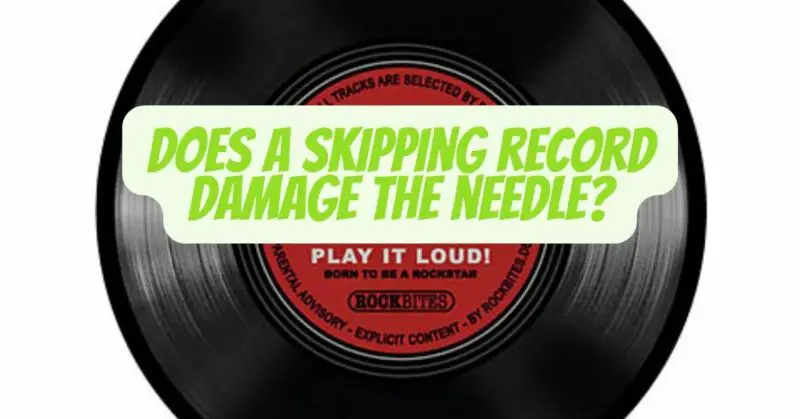If you’re a fan of vinyl records, you’ve likely experienced the frustration of a skipping record. But beyond the annoyance, you may also wonder if a skipping record can cause damage to the needle of your turntable.
The answer is yes, a skipping record can potentially damage the needle or stylus of your turntable. When a record skips, the needle can bounce out of the groove and then quickly return, sometimes even hitting the sides of the groove. This can cause the stylus to wear down or even break, leading to a loss of sound quality or the need for costly repairs.
However, it’s important to note that not all skipping is created equal. A record that skips occasionally is unlikely to cause significant damage, while a record that skips continuously could be more problematic. Additionally, the quality of your turntable and cartridge can also impact the level of damage caused by a skipping record.
So what can you do to minimize the risk of damage from a skipping record? First, ensure that your turntable and cartridge are properly calibrated and in good condition. A well-maintained turntable is less likely to experience skipping in the first place, and a high-quality cartridge can better withstand the rigors of a skipping record.
Second, be mindful of the condition of your records. Scratches, warps, and other defects can increase the likelihood of skipping, so take care to handle your records properly and store them in a safe environment.
Finally, if you do experience a skipping record, don’t try to force it to play. Stop the turntable and carefully examine the record for any visible damage. If you notice any significant scratches or warping, it’s best to avoid playing the record until it can be repaired or replaced.
In conclusion, while a skipping record can potentially damage the needle or stylus of your turntable, the risk can be minimized with proper equipment maintenance and record handling. So enjoy your vinyl collection, but be sure to take care of your equipment and records to ensure optimal sound quality and longevity.

